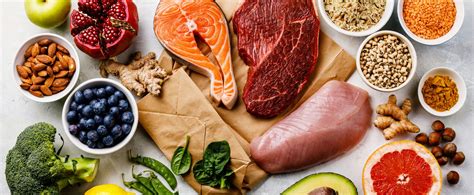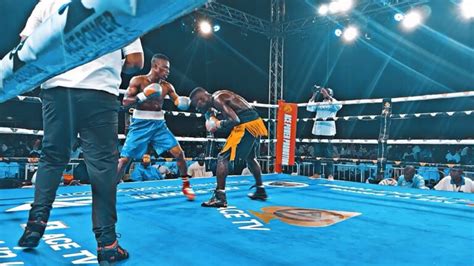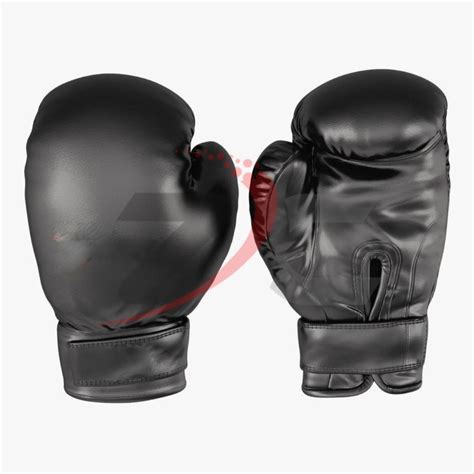Explore how boxing nutrition enhances performance, effective pre- and post-training meals, hydration strategies, and top nutrient-rich foods for optimal energy and recovery.In the high-stakes world of boxing, optimal performance hinges not only on skill and technique but also on smart nutrition. Boxing Nutrition: What To Eat Before And After Training serves as your comprehensive guide to fueling your body for success. Whether you’re an aspiring boxer or a seasoned athlete, understanding the pivotal role nutrition plays in your performance can elevate your game. From pre-training meals that maximize energy to post-training recovery strategies that replenish essential nutrients, this article will cover everything you need to know about boxing nutrition. Discover hydration strategies critical for maintaining peak performance and explore top nutrient-rich foods that can give you a competitive edge. Equip yourself with the knowledge to refine your diet and boost your training results as we delve into the essentials of boxing nutrition.
Understanding The Role Of Boxing Nutrition In Performance
Boxing nutrition plays a crucial role in enhancing an athlete’s performance in the ring. Proper nutrition not only fuels the body for rigorous training sessions but also aids in recovery, contributing to improved strength, endurance, and overall performance. The right balance of macronutrients—carbohydrates, proteins, and fats—combined with essential vitamins and minerals supports the boxer’s body in reaching its maximum potential.
A well-structured boxing nutrition plan focuses on delivering energy at different stages of training. Carbohydrates are particularly important as they provide the necessary energy for high-intensity workouts, while proteins are vital for muscle repair and growth. Incorporating healthy fats assists in sustaining energy levels during longer training sessions.
Moreover, maintaining an optimal hydration status is integral to boxing nutrition, as even mild dehydration can significantly impair performance, focus, and recovery time. Athletes must recognize that their nutritional needs may vary based on the intensity of their training, individual metabolism, and personal goals in the sport.
Understanding the role of boxing nutrition in performance is essential for boxers who aim to maximize their potential. Tailoring a nutrition plan to meet the specific demands of the sport can lead to better results, from improved training outcomes to enhanced competitive performance in the ring.
Pre-Training Meals: Fueling Your Body For Optimal Energy
Choosing the right pre-training meals is crucial for maximizing your performance during boxing workouts. The goal is to provide your body with adequate Boxing Nutrition to ensure you have enough energy and stamina throughout your training session.
A well-structured pre-training meal should include a balance of carbohydrates, proteins, and fats. Carbohydrates are the primary source of energy for any workout, especially in a high-intensity sport like boxing. Foods such as whole grain bread, oatmeal, and fruits like bananas provide the necessary fuel to keep your energy levels high.
Incorporating protein into your pre-training meal is also vital. It helps in muscle repair and prevents muscle breakdown during intense exercise. Good sources include Greek yogurt, lean meats, or plant-based options like lentils and beans. Combining carbohydrates with protein not only optimizes energy levels but also enhances muscle recovery.
Fats, although often misunderstood, can also play a role when consumed in moderation. Healthy fats such as avocados, nuts, or olive oil can provide sustained energy. However, it’s essential to avoid high-fat meals right before training to prevent sluggishness.
Timing your pre-training meal is just as critical as the composition. Aim to eat a well-balanced meal about 2-3 hours before your boxing session to allow for proper digestion. If you’re short on time or need a quick boost, a smaller snack composed of simple carbohydrates and a little protein can be consumed 30-60 minutes prior.
To summarize, a well-planned pre-training meal rich in carbohydrates, protein, and healthy fats will significantly enhance your energy levels and overall performance in the ring. With the right Boxing Nutrition, you can ensure your body is fully prepared to meet the challenges of any training session.
Post-Training Nutrition: Essential Recovery For Boxers
Once the training session ends, the focus of Boxing Nutrition: shifts from fueling to recovery. Proper post-training nutrition is crucial for restoring energy levels, repairing muscles, and preparing the body for subsequent training sessions.
After an intense boxing workout, the body undergoes a significant amount of stress and depletes its glycogen stores. To facilitate recovery, it is essential to consume a meal that combines both carbohydrates and protein within 30 to 60 minutes post-training. This timeframe is often referred to as the recovery window, where the body is more receptive to nutrient absorption.
Carbohydrates for Glycogen Restoration
Carbohydrates play a vital role in replenishing glycogen stores that were depleted during exercise. Aim for complex carbohydrates such as brown rice, whole-grain pasta, or sweet potatoes. Combining these with simple carbohydrates like fruits can enhance recovery by facilitating quicker glycogen restoration.
Protein for Muscle Repair
To support muscle repair and growth, it’s crucial to include a good source of protein in your post-training meal. Options like lean chicken, turkey, fish, Greek yogurt, or a protein shake can significantly aid muscle recovery. A general recommendation is to consume approximately 20-30 grams of protein post-training.
Healthy Fats for Overall Recovery
Including healthy fats in your post-workout meal can help reduce inflammation and support overall recovery. Sources like avocado, nuts, and olive oil should be incorporated in moderation.
Sample Post-Training Meal Ideas
- Grilled chicken with quinoa and steamed broccoli.
- Whole grain toast with avocado and poached eggs.
- Smoothie made with banana, spinach, protein powder, and almond milk.
- Greek yogurt topped with mixed berries and a sprinkle of granola.
Incorporating these strategies into your post-training routine can enhance your recovery process and optimize your performance during future training sessions. Remember, consistent attention to Boxing Nutrition: will lead to better results in the ring!
Hydration Strategies: How Water Impacts Boxing Performance
When it comes to Boxing Nutrition: one of the most critical yet often overlooked aspects is hydration. Proper hydration not only supports optimal physical performance but also plays a significant role in recovery processes. Boxers can lose significant amounts of water through sweat during training, which can lead to decreased performance and slower recovery times.
Here are some key hydration strategies to consider:
| When to Hydrate | Hydration Tip |
|---|---|
| Before Training | Drink water 1-2 hours prior to your workout to ensure proper hydration. |
| During Training | Sip on water or a sports drink every 15-20 minutes to maintain energy levels. |
| After Training | Replenish lost fluids by drinking water or electrolyte-rich beverages. Aim for 16-24 ounces for every pound lost during the workout. |
Incorporating adequate hydration into your Boxing Nutrition: strategy helps improve endurance, reduce fatigue, and enhance overall performance in the ring. Additionally, it aids in preventing injuries and cramping, which can hinder a boxer’s training regimen.
Choose hydration sources wisely; plain water is effective, but for intense training sessions that last longer than an hour, consider electrolyte drinks to replace sodium, potassium, and other essential minerals lost through sweat. Remember, staying hydrated is not just about drinking enough water, but also about timing your intake to align with your training schedule for maximum benefits.
Top Nutrient-Rich Foods For Effective Boxing Nutrition
To maximize performance and recovery, incorporating nutrient-rich foods into your diet is essential. Here are some of the best food options for every boxer:
- Lean Proteins: Foods like chicken breast, turkey, fish, and legumes provide the essential amino acids necessary for muscle repair and growth.
- Complex Carbohydrates: Brown rice, quinoa, whole grain pasta, and sweet potatoes are excellent sources of energy, helping to fuel rigorous training sessions.
- Healthy Fats: Avocados, nuts, seeds, and olive oil contribute to sustained energy levels and support overall health.
- Fruits and Vegetables: These are crucial for their vitamins, minerals, and antioxidants. Berries, bananas, spinach, and broccoli can enhance recovery and reduce inflammation.
- Dairy or Dairy Alternatives: Low-fat yogurt or plant-based alternatives are great for providing calcium and protein, which are vital for bone health and muscle function.
By prioritizing these nutrient-rich foods in your Boxing Nutrition plan, you can ensure that your body is well-fueled for both training and recovery, ultimately improving your boxing performance.
Frequently Asked Questions
What is the importance of nutrition for boxers?
Nutrition plays a crucial role in a boxer’s performance, recovery, and overall health. Proper nutrition helps to fuel workouts, maintain energy levels, and support muscle recovery.
What should boxers eat before a training session?
Boxers should consume a balanced meal rich in carbohydrates, protein, and healthy fats about 2-3 hours before training. Good options include whole grains, lean meats, fruits, and vegetables.
When is the best time to eat after training?
The best time to eat after training is within 30 to 60 minutes to optimize recovery. This post-training meal should include a combination of protein and carbohydrates to replenish glycogen stores and aid muscle repair.
What are some ideal post-training meals for boxers?
Ideal post-training meals include grilled chicken with quinoa and vegetables, a protein shake with banana and oatmeal, or Greek yogurt with mixed berries and honey.
How much water should boxers drink before and after training?
Boxers should aim to hydrate consistently before, during, and after training sessions. A general guideline is to drink at least 16-20 ounces of water 2-3 hours before, and to continue drinking water during and post-training to replace any lost fluids.
Are there specific snacks boxers should consider before training?
Yes, ideal pre-training snacks include easy-to-digest carbohydrates like bananas, energy bars, or toast with peanut butter, which can provide a quick energy boost without feeling too heavy.
What role does timing play in boxing nutrition?
Timing is essential in boxing nutrition, as eating at appropriate intervals before and after training can maximize energy levels during workouts and enhance recovery after training, ensuring optimal performance.









